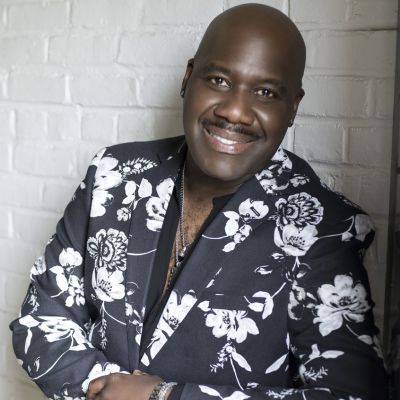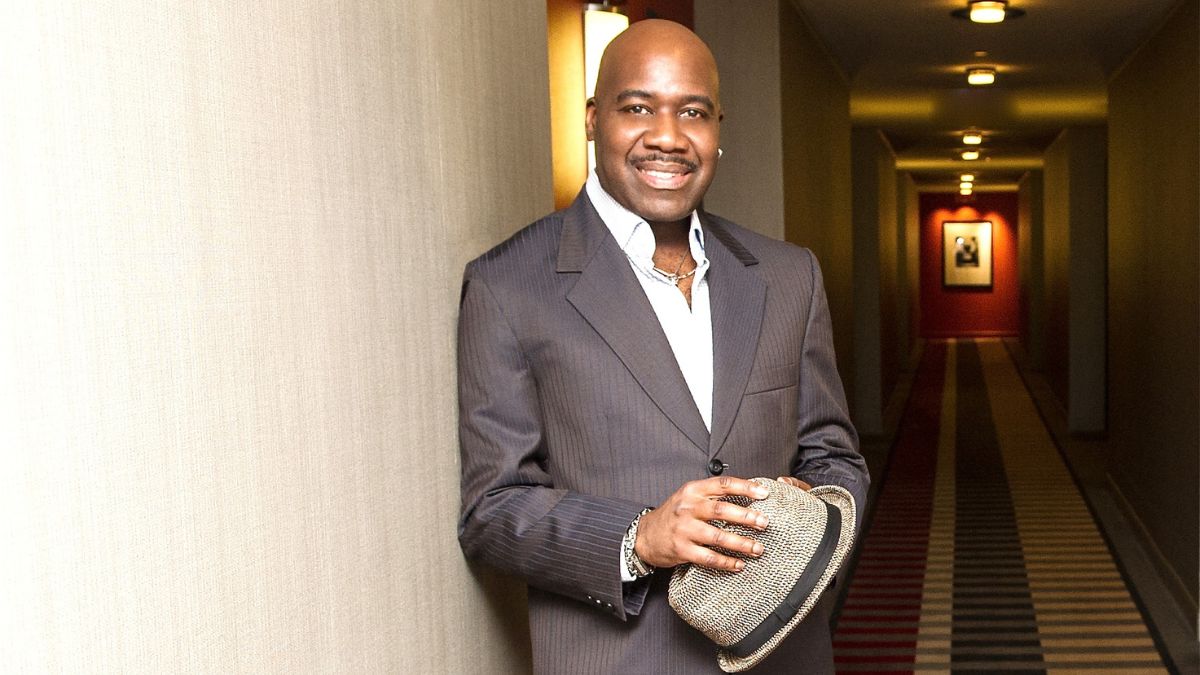This is Part I of our interview with Will Downing. Read Part II here.
Will Downing, who has been creating his brand of sophisticated soul for nearly 40 years, is experiencing a year of firsts — and it has nothing to do with music.
In January, his daughter Aron Siobhan committed suicide. She was bipolar, had depression and some schizophrenia.
Months after her death, Downing and his family still don’t know why she took her life.
Downing has since released a single entitled “Till We Meet Again,” his conversation with Siobhan. In the song, he expresses frustration and finally resignation over her passing, but he also issues a message of hope to anyone confronted with mental health challenges.
Not too long after he played before hundreds of fans at the Country Club Hills Amphitheater, Downing spoke with The Chicago Defender to discuss his daughter’s passing, longevity in the music industry and what’s next.
Downing just experienced his first Father’s Day without Siobhan and is preparing for more “firsts” without her, with Thanksgiving and Christmas approaching the end of the year.
This is the first of our two-part Q&A with the Grammy-nominated singer.

Chicago Defender: When you come to Chicago, does the city hold a special place for you as a performer?
Will Downing: Chicago is a music town. There are certain cities that, regardless of what’s going on in the world, whether it be economic or anything else, there are certain cities that you enjoy going to because they appreciate real music. And Chicago is one of those cities for me. It’s one of the few cities, in my opinion, that actually still has a legacy there. There’s a culture there that hasn’t aged out.
I live in New York, and everything is very, in my opinion, “at the moment.” New York and other major cities are known to just throw artists away. If it’s not happening right now, then you’re not happening.
You say, ‘Well, come on out, man, it’s just good legacy music. And you get the raised eyebrow, or the hesitancy or something like that. That’s something that I haven’t seen happen in cities like Chicago, Detroit or Philadelphia. It’s just, ‘We love good music regardless of whether it’s classic R&B or classic soul or whether it’s the new stuff. As an artist, you learn to appreciate that when you see it.
CD: I wanted to switch gears here and talk about “Till We Meet Again,” a song you’ve released about what occurred in January with your daughter. Is there anything you’d like to discuss concerning that song and how you are dealing with that situation?
Will Downing: The song, for those who haven’t heard it, is basically a conversation that I’ve had with all of my children, especially my daughter, [Aron] Siobhan. On many occasions, she would call me and say that she was about to do something. And I’d be like, ‘You know, come on. What are you doing?’
Sometimes the conversations turn into arguments, but it was still out of love. Then when it was all said and done, we hugged it out, ‘I love you. But you know, I think you’re about to make a mistake, or you might want to rethink this. Maybe there’s another way of doing it.’
The first opening line of the song is, “I wish you could tell me what the hell was on your mind.” You know, the last time I talked to you, you seemed like you were doing alright. And I’ve had that conversation with her a million times. She loved tattoos. She’d be like, ‘I’m gonna get a tattoo on my thigh.’ And I’m like, ‘Why?’
One time she came to visit me. She had a tattoo on the back of her neck that had her birth date on it. I said, ‘Well, why did you do that?’ (She answered) ‘Well, just in case someone asked me what my birthday was.’
‘Okay, Siobhan, when’s your birthday?’ And then she tells me the date, and I go, ‘Okay, that ends that conversation.’ You could’ve saved yourself like $250 or $500. Like, ‘Why didn’t you just come talk to me about it? And then she’d look at me and say, ‘I guess you’re right.’ I’d say, ‘Ahh, give me a hug. I love you. Let’s keep moving.’
So that’s, that’s what the song is; it’s me talking with her, and her mother feels the same way. I was having a conversation with her, and this time, you know, obviously, we can’t bring her back. We just wish that she would have spoken with us before doing what she did.
Unfortunately, it’s something that, as parents and her family — her sisters and brother — that we have to live with not knowing. That’s the hard part.
And then for other people, to let folks who hear the song who might be going through a similar problem, whether on their own or with a family member or someone they know. It’s a wake-up call to make sure that you stay in communication with your loved ones.
CD: You’re talking about living without knowing why she died. Is that what I’m getting from what you’re saying?
Will Downing: Yeah, that’s the brutal part. You know, she left a note. But it was very, like, cryptic, you know what I mean? It might have made perfect sense to her, but for those who are left behind, it’s like, ‘Well, I’m going to need a little more than that.”
There’s certainly a slight guilt factor. Where you look at yourself, and you say, ‘What did I miss? What didn’t I say? Where did I go wrong?’ You know, that sort of thing. And it’s just something we’re all just going to have to live with. It’s unfortunate, but it’s kind of the way it is.
CD: I noticed she was an artist, and you featured her work on the cover of the single. Can you describe her art and how it strikes you?
Will Downing: Artistically, she could do anything. Some of it was very avant-garde, and some of it had to be explained to me. She was a music person as well. So, it was an outlet.
And the thing that made it really difficult for her living was when the pandemic hit. The pandemic isolated all of us. But if you have a mental condition of some sort, it can be heightened. And she was in that category, and FaceTime and all that stuff that works every once in a while. But sometimes you just need that human connection to be able to touch the person, to be able to look someone in the eye, that sort of thing.
In that sense, that definitely didn’t help. It didn’t help at all, to be honest with you. You know, a lot of little things make the puzzle, the puzzle. So that’s what it is. And she’s missed without a doubt.
CD: How do you plan to continue to honor her memory? Even on Father’s Day, was there anything that you did to honor your daughter’s memory?
Will Downing: You know what, man, there will be a bunch of firsts throughout this whole year. And, for me, I just kind of chilled. I wasn’t emotional on Father’s Day, but the day after, I found some old cards she had sent me when she was little. And that broke me down.
So yeah, there’s a bunch of firsts: the first Mother’s Day her Mother went through without her, the first Father’s Day. There will be a first Christmas. There will be a first everything — first birthday. So, it’s going to be a bunch of that. So, for this year, it’s going to be a tough one. And I’m sure things will get easier in time. But, for this year, it’s a tough one.
And to honor her, I’m not going to call myself an expert in any way in this field, but if I can raise awareness in people who are going through some of the same things, that’s the goal.
CD: And you’re talking mental health-wise?
Will Downing: Exactly, exactly.
In Part II of our interview with Will Downing, we discuss his longevity and what’s next for him.
This interview has been edited and condensed for clarity.
Will Downing kicked off the Country Club Hills Concert series. This summer Eric Benet, Kindred the Family Soul, Avery Sunshine, Kenny Lattimore, Joe, Chrisette Michele, The 50th Anniversary of Hip Hop with the Sugar Hill Gang and Big Daddy Kane, plus Comedians George Wallace, Tommy Davidson, Earthquake will also be performing in the series from Now until September 2. Tickets are available at www.cchtheater.com.



